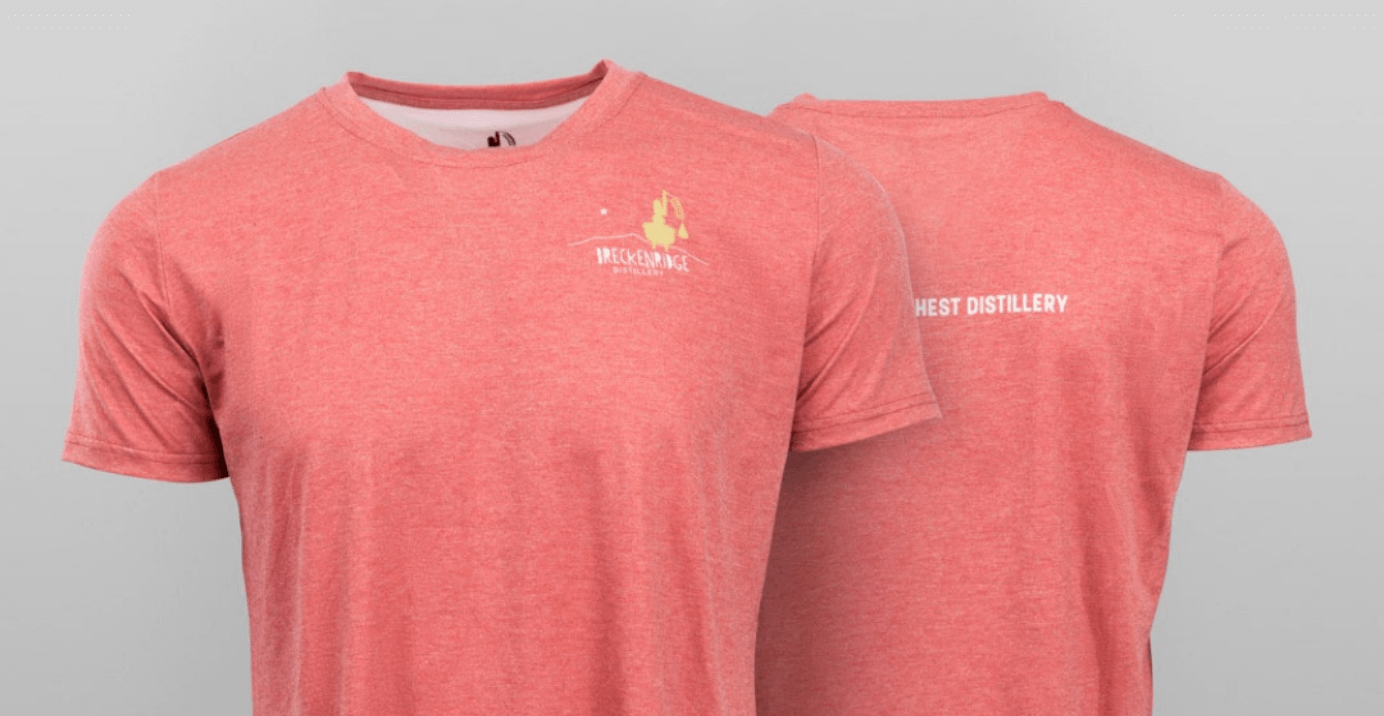What are Promotional Products?
Promotional products are items such as pens or mugs which are produced with a company’s name or logo on them, also known by the terms merchandise, swag, promo goods, or branded products. They are used to promote the company and can either be sold to loyal consumers or given away as promotional items to increase brand awareness. Distributed at little to no cost and providing numerous benefits to brands, promotional products are one of the most affordable marketing strategies available to businesses.
Do Promotional Products Work?
In 2016, the Advertising Specialty Institute conducted a study on the effectiveness of branded swag. The study revealed that most people keep promotional products for an average of eight months, extending the life-span of your item far beyond marketing tactics such as PPC ads or email marketing. This said, the actual time the item is retained is dependent on the product. For example, umbrella’s are typically used by consumers for up to fourteen months, while hats often last only seven. However, the study shows that those consumers often become valuable ambassadors for the brand, with 63% of United States consumers passing on their merchandise to others when they are finished with them.
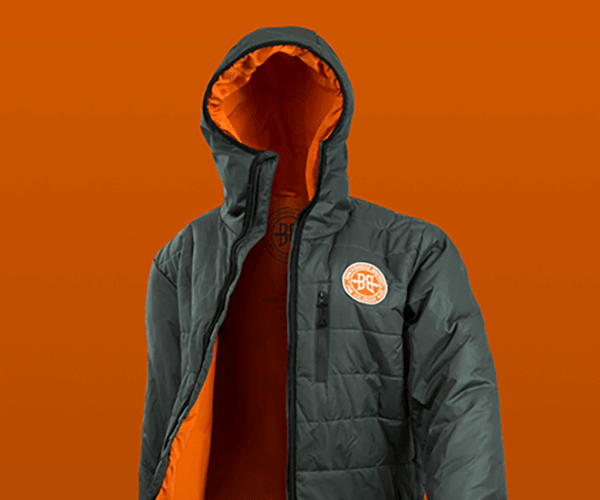
Proving that brand awareness is extended by promo goods, the study showed that 85% of consumers remembered brands who gave them a shirt or hat. Conversely, a 2016 study by PPAI revealed that 88% of promotional product recipients remember the name of the advertiser on the products, while 85% of the recipients do business with the advertiser on the product and more than 83% of people enjoy receiving them, proving that promotional products work.
A Brief History of Swag
- The first known promotional products in the United States were commemorative buttons dating back to George Washington’s election in 1789.
- While an organized industry wouldn’t form until later in the 19th century, there are further instances of calendars, rulers and wooden specialities being used as promotional goods in the early 19th century.
- A printer from Coshocton, Ohio, Jasper Meek, is considered to be the originator of the industry. He convinced a local shoe story to supply branded book bags with their logo imprinted onto the design to local schools. Along with a local competitor, Henry Beach, Jasper soon began reselling branded swag such as marble bags, fans, and calendars.
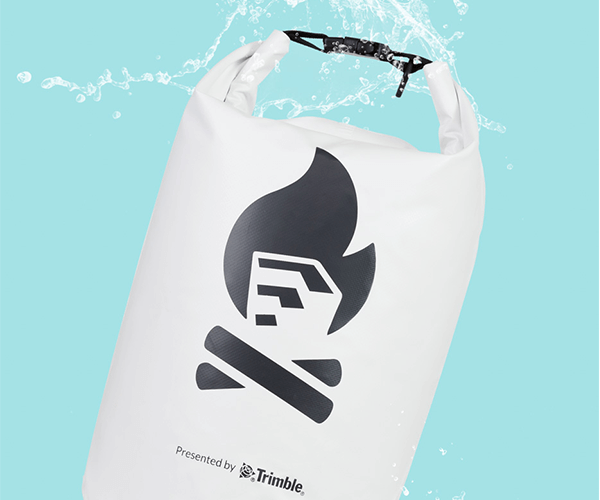
Types of Promotional Products
The list of items that can be branded with a company’s name or logo for promotional purposes is almost endless. While there are common items such as t-shirts, pens, mugs, and mouse pads, there’s also room for a lot of creativity when choosing what products to brand.
- Writing Instruments: aka pens. An item you can’t go wrong with adding your logo to. They’re used every day, whether at work or at home.
- Tote Bags: Also affectionately called ‘swag bags’, tote’s are perfect branding apparatus’ because their larger white space leaves more than adequate room for your logo, while their size makes them the perfect storage for other branded promo goods.
- Sunglasses: When summer arrives, out come the shades. Ensure your customers look their best in a pair of branded sunglasses that offer a fun, unique avenue for promoting your business.
- Drinkware: Perfect for outdoor or indoor use, mugs, cups, glassware, and tumblers are an ideal hand-held promotional tool.
- Journals and Sticky Notes: We all love taking notes. Why not ensure your customers take their notes while keeping you top of mind?
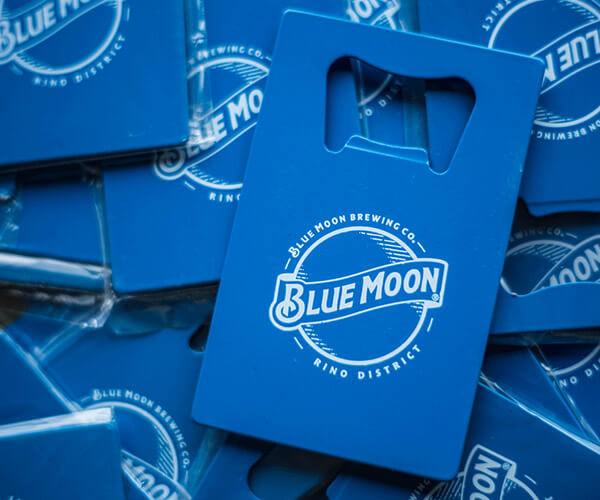
How you can use Promotional Products
Used globally, promotional products are the perfect giveaway tool. While brand awareness is the most common use for promo goods, they can also be used as as a sales tool, for rewarding employees, or by non-profits to promote a cause. There are many ways in which merchandise can be used effectively. Here are a few:
- Brand Store: Many brands, especially within the brewing industry, sell their merchandise and promo goods via a shopfront or ecommerce store. Not only does this help the brand to cover the costs of the promotional products, it has the dual benefit of creating brand awareness through the consumers who use the goods.
- Conferences and Trade Shows: Promotional products can be at conferences and trade shows to drive traffic to the booth or to reward attendees for their patronage. For example, we recently produced swag bags for SketchUp’s biannual 3D Basecamp 2018 event which included t-shirts, towels and flash drives. With over 1200 event attendees plus conference staff in attendance, these merchandise packs were a huge hit!
- Events: Quality memorabilia can provide participants with a tangible reminder of the event.
- Giveaways: Who doesn’t love a free gift? Reward your customers and they’ll reward you in return by sharing your brand with friends and family when they use your pen, mug, sunglasses, or tote bag. Branded giveaways are an ideal public relations tool.
- Employee Gifts: Promotional products can be used when onboarding new employees, or as annual corporate gifts for employees. Not only are they cost effective marketing tools, but they help to build loyalty and retention amongst employees.
- Corporate Gifts: Not sure what to get your valued client? Promotional products bearing your logo and identity can be the perfect gift for reinforcing brand awareness. Additionally, they’re a great competitor marketing tool.
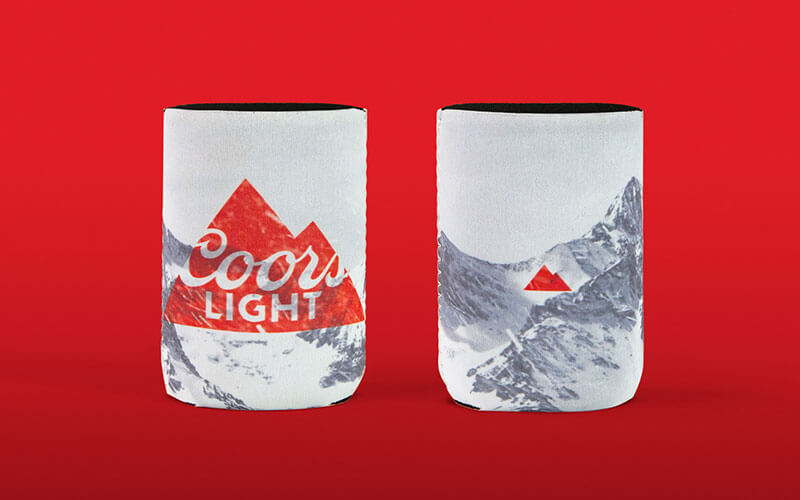
When choosing promotional items, price shouldn’t be your deciding factor. Rather than price, make sure your vendor understands your audience, business, and goals. Further, with statistics proving that consumers really do use the swag you give out, make sure the promotional products you produce reflect your brand and message. Lastly, choose your vendor carefully. Work with a company you can trust, someone who has proven experience delivering for clients and who focuses on the details and quality of what you are producing.
